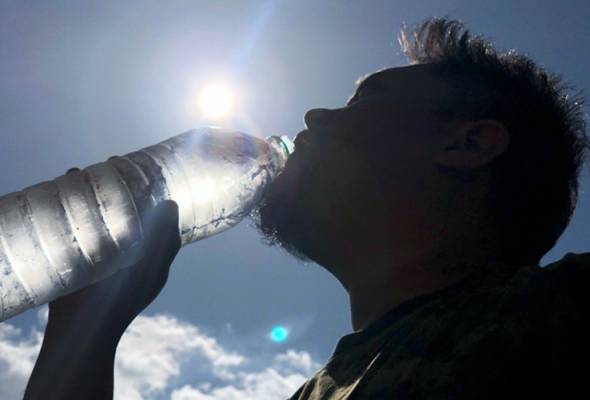KUALA LUMPUR, May 16 — Just like humans, animals are also at risk of heat stroke following the El Nino phenomenon or hot weather that is expected to hit the country until this September.
Head of the Department of Veterinary Pathology and Microbiology Dr Farina Mustaffa Kamal said among symptoms of heat stroke is sticking out (panting) and saliva coming out in large amounts (hypersalivation).
“In severe conditions, the animal will look weak, experience diarrhoea, vomiting, epilepsy, increased heart rate, and the tongue will turn red or purple,” she told Bernama.
She added that if the symptoms occur, the animals should be taken to a shaded, windy or air-conditioned area and then wrapped with a wet towel, especially on the head, neck, chest, and legs or give them a bath.
“Avoid soaking animals with ice. Immediately take your animal to the nearest veterinary clinic for further examination,” she said.
Dr Farina also advised animal owners to ensure that there was enough water for animals to consume, avoid taking animals out between 12 noon and 4 pm, avoid situations that can cause them stress and if they are in a cage, the number of animals should not be too many with good airflow.
Meanwhile, Hospital Canselor Tuanku Muhriz Emergency Medicine Specialist Dr Syed Muhammad Syed Ali said among the factors that increase the risk of heat illness for humans is obesity, delirium (mental illness), immobility, no air movement, high humidity and drinking less water.
“Among the preparations that people can do is, drink a lot of water, always stay in the shade and avoid wearing tight clothing and reduce ventilation such as neckties and tight mandarin collars,” he said.
The public is also advised to use a weather application that can calculate the temperature according to the amount of humidity (reelfeel) to plan daily activities and not to force yourself if there are signs of heat exhaustion and then immediately cool down or ask for help.
He said that if compared to adults, children are more at risk of heat illness due to the greater ratio of skin surface area compared to body weight which can cause heat to be more easily absorbed from a hot environment.
A primary school teacher in the capital, Syarifah Aina Amiruddin, 31, said following the El Nino phenomenon Malaysia is facing, outdoor activities for children need to be reduced.
“I will find ways to make sure my children are entertained at home, and not go out when the weather is hot, besides will urge them to drink a lot of water to keep them hydrated,” said the mother of two sons aged seven and five.
A childminder, Fauziah Mohd Amin, 57, said she would make sure her children drank plenty of water and that outdoor activities were carried out when the weather was cooler.
“I will only take them out to the playground after 5.30 pm to 6.30 pm,” said Fauziah who takes care of four children aged two to six.
















